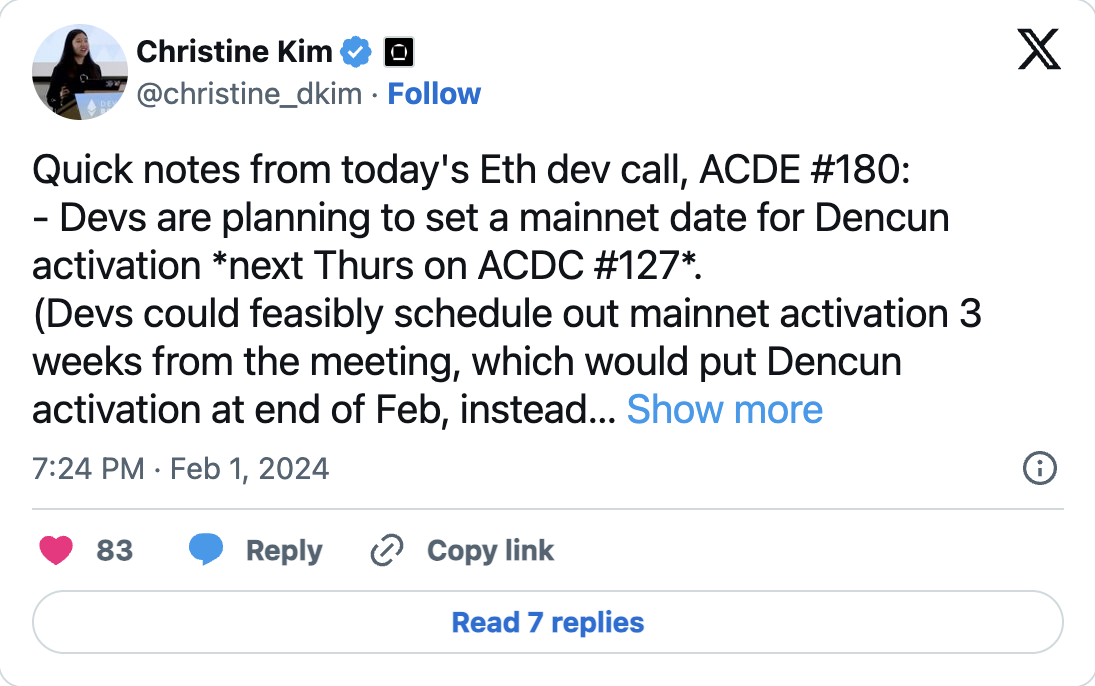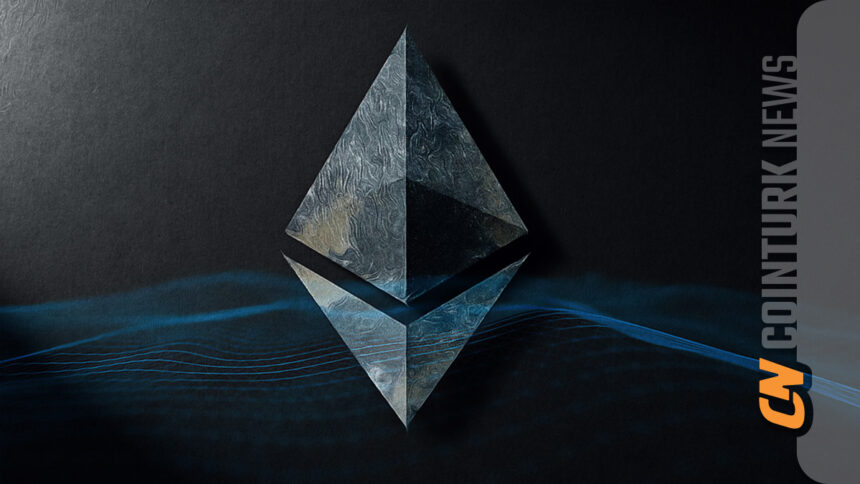With the rise in the crypto market, significant developments continue to occur on blockchain networks. Accordingly, Ethereum developers are planning to set a mainnet launch date for February 8 for the Dencun upgrade, which will introduce various Ethereum Improvement Proposals (EIPs), including proto-danksharding expected to reduce transaction costs in Layer-2 networks.
Final Steps for the Dencun Upgrade
Ethereum core developer Tim Beiko revealed in a post on Reddit on February 1 that the final tests of the upgrade are going very well and highlighted the important details of the All Developer Execution Call (ACDE) 180 call process, which drew attention to the last success of the Sepolia fork process on January 30 and the upcoming Holesky testnet upgrade on February 7.

The Dencun upgrade includes several key changes in Ethereum’s consensus and execution layers, as summarized in a blog post by the Ethereum Foundation dated January 24. The upgrade will follow last year’s Shapella upgrade, which took place on the Ethereum mainnet on April 12, 2023. This upgrade had enabled the disposal of Ethereum and was seen as an important update to attract more institutional investors. Beiko stated the following:
“Assuming everything looks good by then, we will choose a mainnet fork process time at next week’s ACDC [All Core Devs Call].”
Noteworthy Developments in the Ethereum Network
The next ACDC call is planned to take place at the end of next week. Christine Kim, Vice President of Research at Galaxy Digital, stated that there is an 80% chance of the Dencun mainnet activation happening by the end of March, while also mentioning that it is possible for Dencun to go live by the end of February, but this probability is close to 40%.

The Dencun network upgrade was activated on the Goerli test network on January 17 and introduced various EIPs, including EIP-4844, which developers say will significantly reduce transaction fees in Ethereum Layer-2 networks and is an eagerly awaited development known as proto-dank sharding.
Proto-dank sharding aims to reduce the cost of rollups, which typically collect transactions and data off-chain and send a computation proof to Ethereum blockchain networks. It does this by introducing a new segmented storage space for data called blobs, making data availability cheaper.

 Türkçe
Türkçe Español
Español









